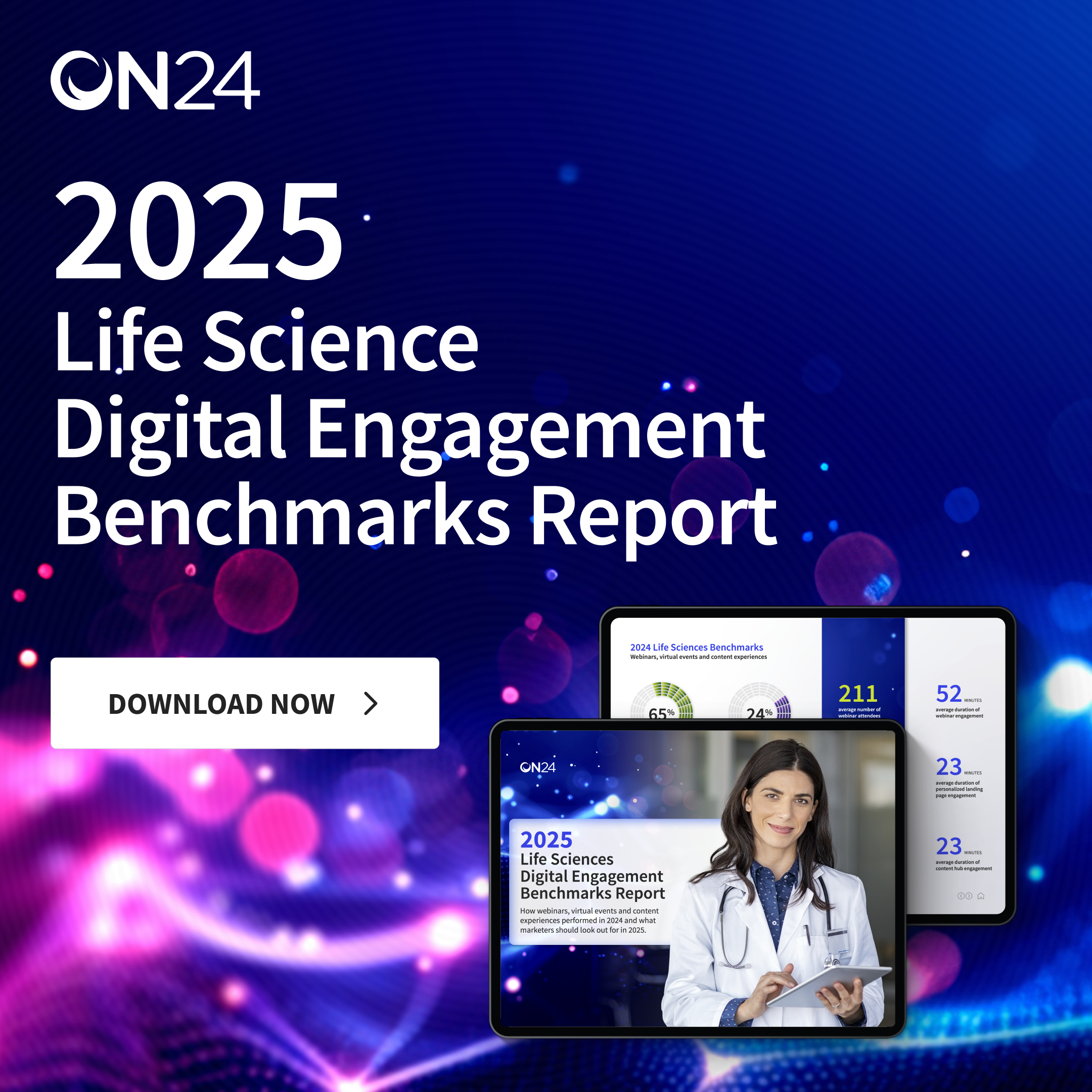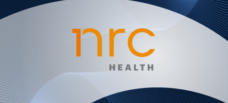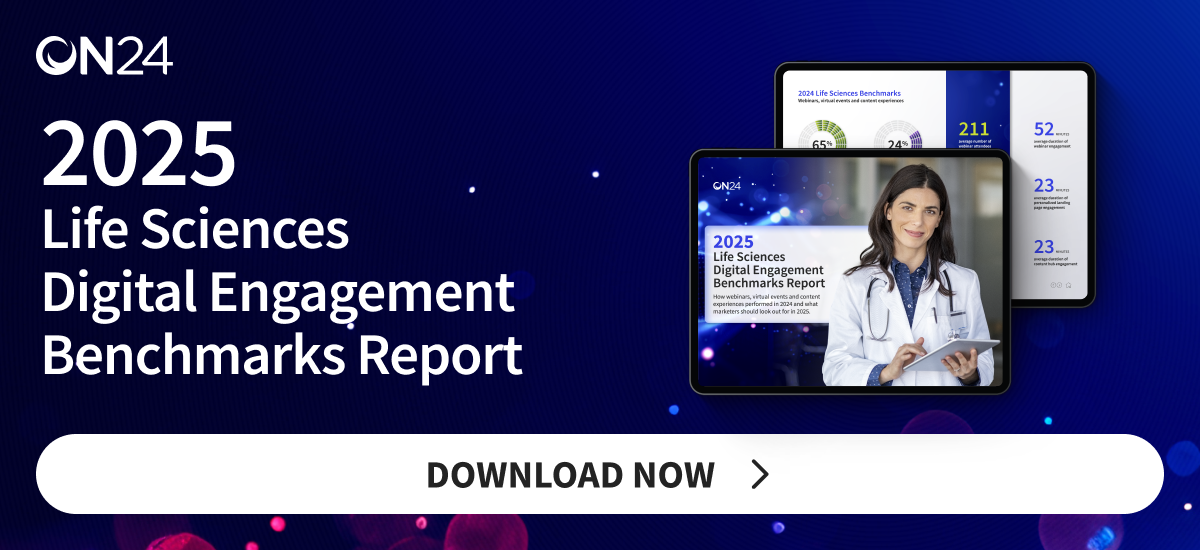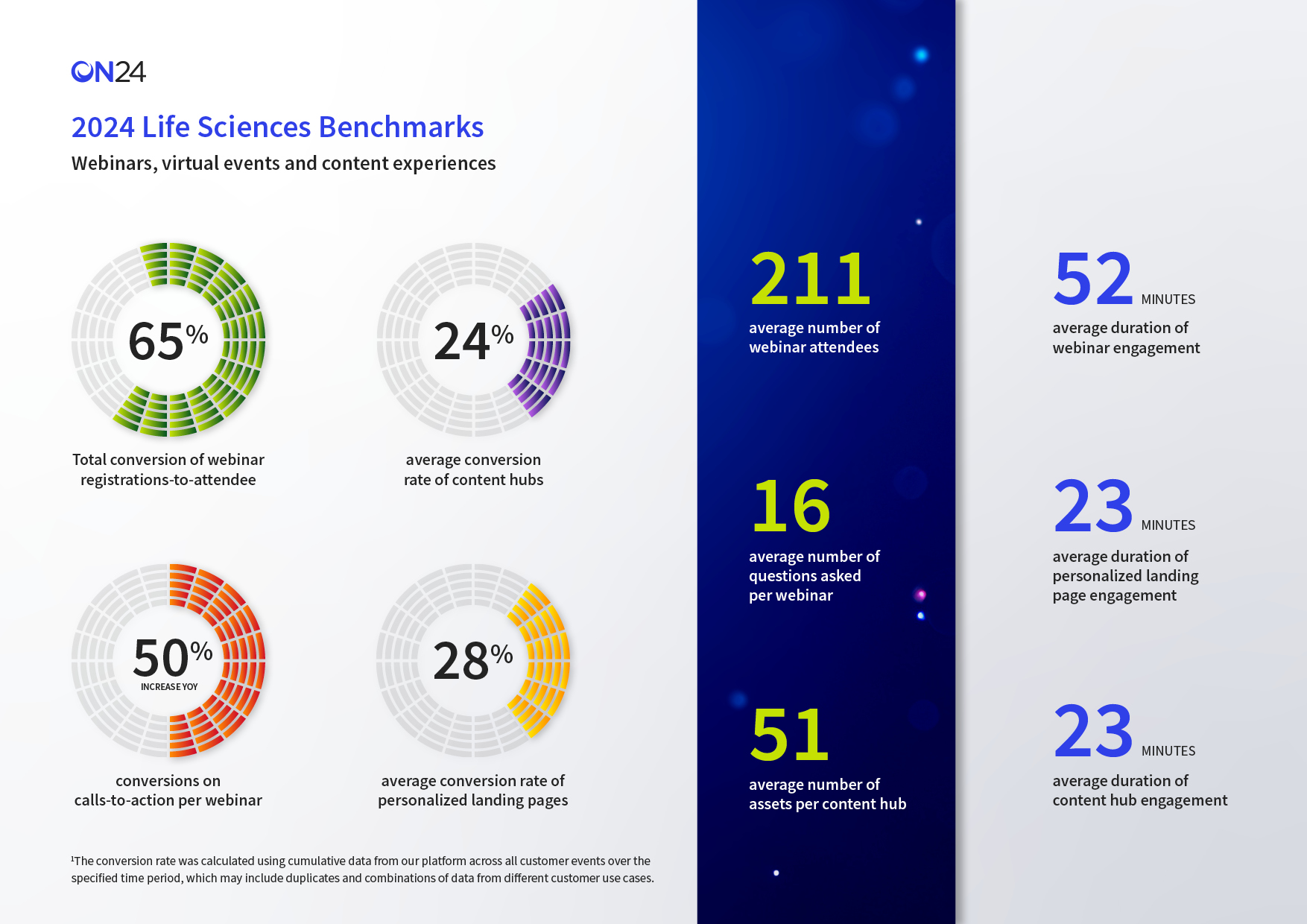Los profesionales del marketing del sector de las ciencias de la vida tienen la misión de captar la atención de los profesionales de la salud. A menudo, esto significa llegar a los canales digitales e impulsar la participación allí donde están dispuestos a dedicar su tiempo.
Pero casi todos los canales digitales son un espacio hipercompetitivo por la atención. Corresponde a los profesionales del marketing de las ciencias de la vida destacar entre el resto de contenidos que los profesionales de la salud, presionados por el tiempo, encuentran habitualmente.
¿Pero cómo?
Eso es lo que nos propusimos responder en nuestro Informe de referencia sobre la participación digital en las ciencias de la vida en 2025. Hemos aprendido cómo los profesionales de las ciencias de la vida utilizaron seminarios web, centros de contenido, páginas de destino y experiencias digitales personalizadas en 2024 para establecer relaciones de confianza con el público, y qué significan estas tendencias para los profesionales del marketing en 2025.
¿Tiene prisa? Haga clic aquí para acceder a nuestra infografía sobre Ciencias de la vida.
Esto es lo que encontramos:
Por qué los profesionales sanitarios prefieren las interacciones digitales

Los datos de ON24 Intelligent Engagement Platform muestran que el compromiso con las experiencias digitales de las ciencias de la vida crece más rápido que en otros sectores. De hecho, según nuestro informe de puntos de referencia, los seminarios web de servicios de ciencias de la vida vieron:
-
- Un 34% más de compromiso total
- Un aumento del 50% en las conversiones de CTA
- Un aumento del 65% en la conversión de la inscripción a la asistencia
- 52 minutos de duración media del compromiso
Pero, ¿qué explica este cambio en el compromiso? Los profesionales de la salud son menos proclives a reunirse en persona con los representantes de ventas, mientras que los pacientes y otras audiencias exigen encontrar respuestas e información digitalmente, al igual que hacen con cualquier otro sector.
Además, un aumento del compromiso y la participación en las CTA significa que los profesionales sanitarios participan activamente en las interacciones digitales y dan pasos adicionales, como descargar recursos o solicitar información después de un seminario web. Los profesionales del marketing pueden sacar partido de ello utilizando valiosos datos de primera mano para impulsar la participación y la personalización.
Por qué los profesionales de las ciencias de la vida consideran necesaria la IA

Antes de 2020, los sectores de ciencias de la vida y farmacéutico igualarán a los sectores público y social en términos de madurez digital, quedando por detrás de sectores como la banca y los seguros. Pero las exigencias relacionadas con COVID-19 obligaron a las ciencias de la vida a ponerse al día en la forma de aprovechar la tecnología digital: empezaron a utilizar herramientas digitales, automatización e IA como parte de su respuesta a las condiciones de trabajo a distancia. De hecho, en comparación con 2023 hubo:
-
- Más de 10 veces más solicitudes de transcripciones automáticas de seminarios web
- La IA genera 6 veces más contenidos derivados de los seminarios web
- Se multiplica por 2 el uso de la IA para contenidos promocionales
Otras investigaciones muestra que casi el 75% de los profesionales de la salud están dispuestos a interactuar con contenidos generados por IA de las empresas farmacéuticas.
La IA generativa permite crear contenidos más personalizados y adaptados para prestar un servicio eficaz a médicos y pacientes. Una encuesta de Deloitte llegó incluso a la conclusión de que muchos consumidores perciben los contenidos generados por IA como iguales o incluso más valiosos que los creados por humanos.
Por qué el sector de las ciencias de la vida debe incorporar experiencias a la carta
 Las experiencias digitales, incluidos los eventos a la carta, son imprescindibles para una verdadera estrategia omnicanal. Las experiencias «always-on» permiten a los profesionales sanitarios solicitar demostraciones y reservas de reuniones en su tiempo libre, después de consumir contenidos relevantes.
Las experiencias digitales, incluidos los eventos a la carta, son imprescindibles para una verdadera estrategia omnicanal. Las experiencias «always-on» permiten a los profesionales sanitarios solicitar demostraciones y reservas de reuniones en su tiempo libre, después de consumir contenidos relevantes.
La investigación muestra que el 70% del proceso de compra se completa incluso antes de hablar con los vendedores, lo que subraya el cambio en la forma en que los profesionales sanitarios interactúan con los representantes. Y puesto que los profesionales de la salud prefieren una experiencia sin representantes, es más importante que nunca ir a su encuentro allí donde están, mediante oportunidades de aprendizaje y herramientas interactivas a través de contenidos a la carta. Nuestro informe de puntos de referencia lo demuestra:
-
- Tasa media de conversión de asistentes a seminarios web del 65
- 211 asistentes de media al seminario web
- 52 minutos de tiempo de participación con seminarios web en directo
- Aumento del 91% en reservas de demostraciones por seminario web
Los profesionales del marketing pueden utilizar este tiempo de compromiso significativo para recopilar datos y ofrecer interacciones futuras eficaces. El compromiso continuo es clave, sobre todo porque los profesionales sanitarios pueden volver una y otra vez a los seminarios web a la carta para consolidar sus conocimientos y participar en oportunidades de aprendizaje más de una vez. En el campo de las ciencias de la vida, esto puede ser especialmente útil, ya que el personal sanitario busca reforzar sus conocimientos clínicos.
Sigue habiendo demanda de formación continua

La formación médica continuada (FMC) es clave para los profesionales sanitarios que necesitan acumular un determinado número de créditos para mantener la licencia y estar al día en un sector que avanza a un ritmo vertiginoso. De hecho, el crecimiento anual sostenido de la la participación en la formación médica continuada (FMC) muestra:
-
- Aumento del 28% en certificaciones emitidas por seminario web
- Aumento del 27% de las respuestas a encuestas por seminario web
- 2 veces más asistentes en 2024
- Aumento del 44% de las interacciones de los médicos con contenidos de EMC
Los seminarios web pueden responder a la demanda de aprendizaje continuo y a la carta. Los profesionales de la salud que se interesan por los contenidos de la EMC lo hacen como participantes activos. El aprendizaje centrado en el debate forma parte de su profundo compromiso, y este enfoque activo queda subrayado por el aumento de certificaciones emitidas por seminario web.
Los profesionales del marketing de ciencias de la vida pueden utilizar los datos de primera mano obtenidos de estas experiencias para personalizar el alcance y proporcionar información procesable para el desarrollo futuro de contenidos, fomentando el compromiso del HCP. Las organizaciones que adopten eventos virtuales de alta calidad con centros de contenidos personalizados, proporcionando a los profesionales sanitarios experiencias de aprendizaje que superen sus expectativas, obtendrán los mayores beneficios en lo que se refiere al crecimiento de la cartera de proyectos.
Por qué siguen reinando los contenidos personalizados

Dado que es menos probable que los profesionales sanitarios se reúnan en persona con los representantes de ventas, es imprescindible que las interacciones personalizadas ocupen un lugar destacado. Con los datos de primera mano y la IA generativa, las organizaciones pueden ofrecer exactamente eso: interacciones personalizadas que impulsen el compromiso de primera mano con los profesionales sanitarios.
Por ejemplo, nuestro informe reveló que las páginas de destino personalizadas multiplicaron por 3 las solicitudes de demostración y por 2 las reuniones concertadas. Los contenidos personalizados no se consideran una experiencia agradable; se esperan. De hecho, un estudio de Forrester y Adobe concluye que dos tercios de los consumidores B2B esperan personalización en sus interacciones profesionales.
La IA puede ayudarle a cumplir, e incluso superar, estas expectativas. Puede ayudar a analizar los datos de origen, seguir la forma en que su audiencia consume e interactúa con los contenidos y crear experiencias personalizadas basadas en esta información.
Una empresa farmacéutica especializada cosechó estos beneficios utilizando datos basados en IA para determinar el «siguiente mejor compromiso». ¿El resultado? Lograron multiplicar por 10 el alcance de la atención sanitaria y generaron 200 millones de dólares adicionales en valor.
 Más allá de satisfacer las expectativas digitales de su público B2B, la IA le ayuda a impulsar el pipeline de marketing asegurando mayores tasas de conversión y participando en un proceso de ventas más eficiente. Y lo que es más importante, la IA generativa ayuda a construir una relación de confianza con su audiencia, lo que es clave para el compromiso futuro.
Más allá de satisfacer las expectativas digitales de su público B2B, la IA le ayuda a impulsar el pipeline de marketing asegurando mayores tasas de conversión y participando en un proceso de ventas más eficiente. Y lo que es más importante, la IA generativa ayuda a construir una relación de confianza con su audiencia, lo que es clave para el compromiso futuro.
Para obtener más información sobre cómo puede obtener una ventaja competitiva, consulte nuestro informe 2025 Life Sciences Digital Engagement Benchmarks Report o regístrese para una demostración hoy mismo.





